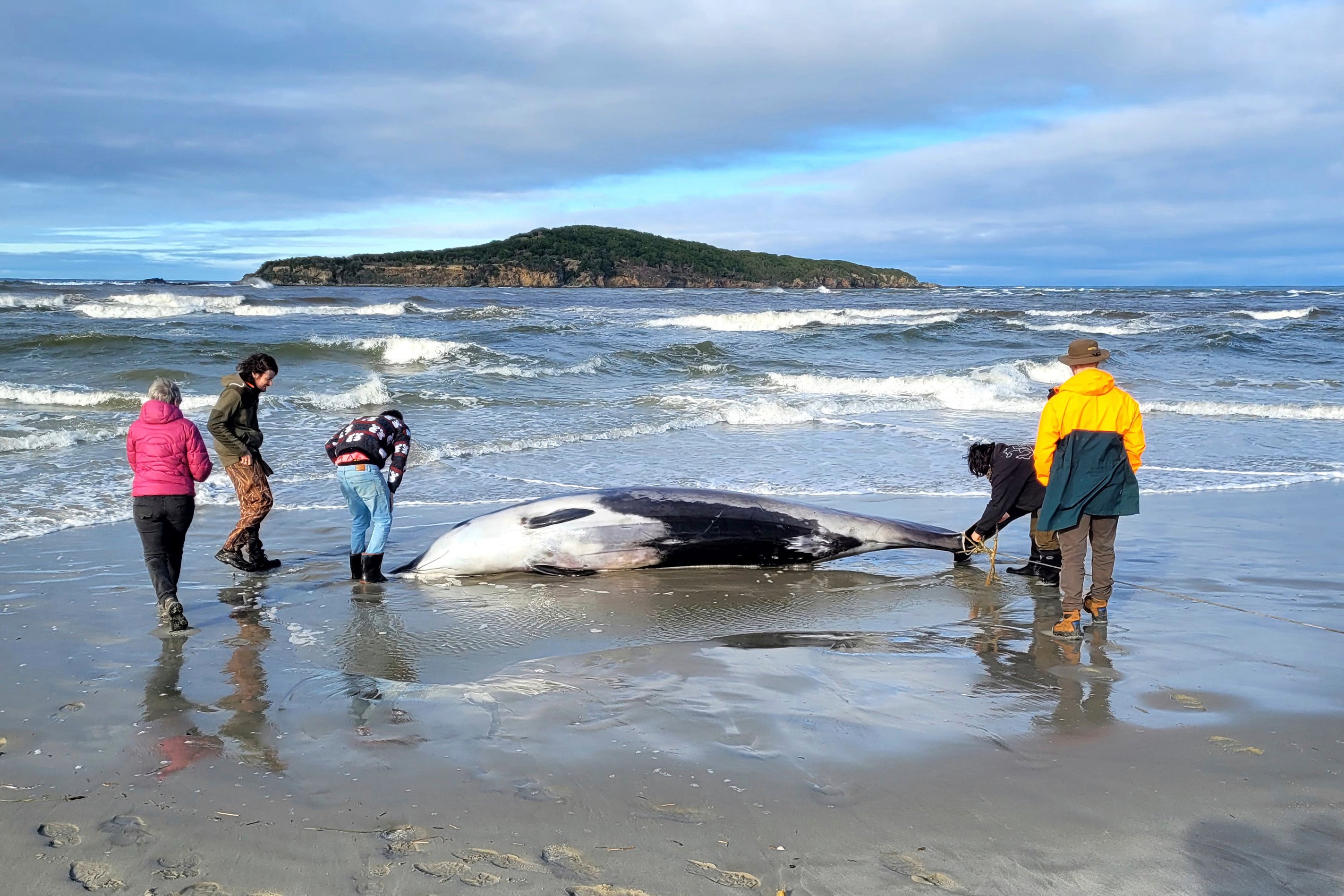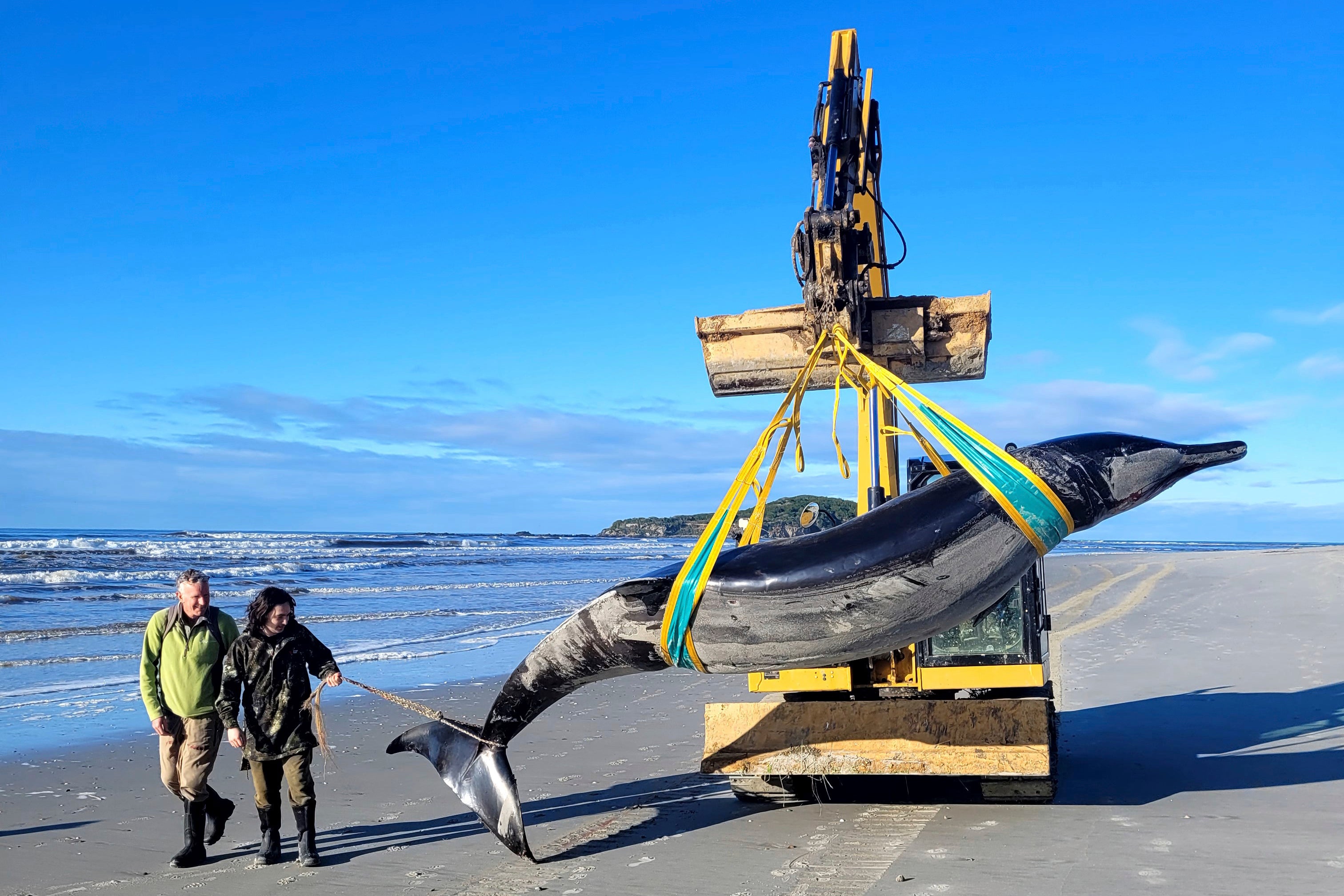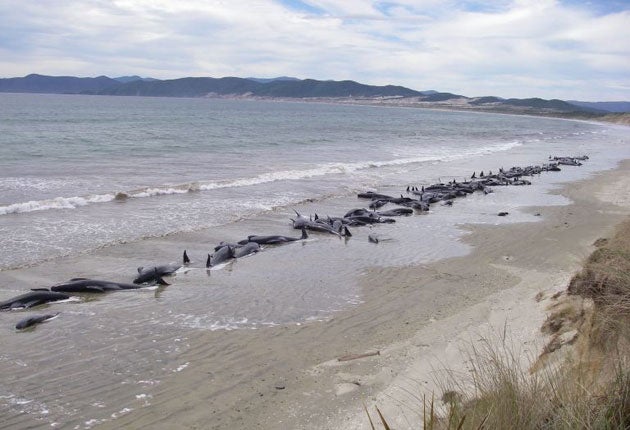The world’s rarest whale has never been seen alive – scientists may have a breakthrough
It was first thought the species could be extinct
Your support helps us to tell the story
From reproductive rights to climate change to Big Tech, The Independent is on the ground when the story is developing. Whether it's investigating the financials of Elon Musk's pro-Trump PAC or producing our latest documentary, 'The A Word', which shines a light on the American women fighting for reproductive rights, we know how important it is to parse out the facts from the messaging.
At such a critical moment in US history, we need reporters on the ground. Your donation allows us to keep sending journalists to speak to both sides of the story.
The Independent is trusted by Americans across the entire political spectrum. And unlike many other quality news outlets, we choose not to lock Americans out of our reporting and analysis with paywalls. We believe quality journalism should be available to everyone, paid for by those who can afford it.
Your support makes all the difference.There has never been a live sighting recorded of the spade-toothed whale. No one knows how many there are, what they eat, or even where they live in the vast expanse of the southern Pacific Ocean.
Scientists in New Zealand may have finally caught a break in the search for details on the world’s rarest whale.
The country's conservation agency said a creature that washed up on a South Island beach is believed to be a spade-toothed whale.

The five-meter-long creature, a type of beaked whale, was identified after it washed ashore on Otago beach from its color patterns and the shape of its skull, beak and teeth
“We know very little, practically nothing” about the creatures, Hannah Hendriks, Marine Technical Advisor for the Department of Conservation, said. “This is going to lead to some amazing science and world-first information.”
If the cetacean is confirmed to be the elusive spade-toothed whale, it would be the first specimen found in a state that would permit scientists to dissect it, allowing them to map the relationship of the whale to the few others of the species found, and learn what it eats and perhaps lead to clues about where they live.

Only six other spade-toothed whales have ever been pinpointed, and those found intact on New Zealand’s North Island beaches had been buried before DNA testing could verify their identification, Hendriks said, thwarting any chance to study them.
This time, the beached whale was quickly transported to cold storage and researchers will work with local Māori iwi (tribes) to plan how it will be examined, the conservation agency said.
New Zealand’s Indigenous people consider whales a taonga — a sacred treasure — of cultural significance. In April, Pacific Indigenous leaders signed a treaty recognizing whales as “legal persons,” although such a declaration is not reflected in the laws of participating nations.
Nothing is currently known about the whales’ habitat. The creatures deep-dive for food and likely surface so rarely that it has been impossible to narrow their location further than the southern Pacific Ocean, home to some of the world’s deepest ocean trenches, Hendriks said.
“It’s very hard to do research on marine mammals if you don’t see them at sea,” she said. “It’s a bit of a needle in a haystack. You don’t know where to look.”

The conservation agency said the genetic testing to confirm the whale's identification could take months.
It took “many years and a mammoth amount of effort by researchers and local people” to identify the “incredibly cryptic” mammals, Kirsten Young, a senior lecturer at the University of Exeter who has studied spade-toothed whales, said in emailed remarks.
The fresh discovery “makes me wonder — how many are out in the deep ocean and how do they live?” Young said.
The first spade-toothed whale bones were found in 1872 on New Zealand’s Pitt Island. Another discovery was made at an offshore island in the 1950s, and the bones of a third were found on Chile’s Robinson Crusoe Island in 1986. DNA sequencing in 2002 proved that all three specimens were of the same species — and that it was one distinct from other beaked whales.
Researchers studying the mammal couldn’t confirm if the species went extinct. Then in 2010, two, whole, spade-toothed whales, both dead, washed up on a New Zealand beach. Firstly mistaken for one of New Zealand’s 13 other more common types of beaked whale, tissue samples — taken after they were buried — revealed them as the enigmatic species.
